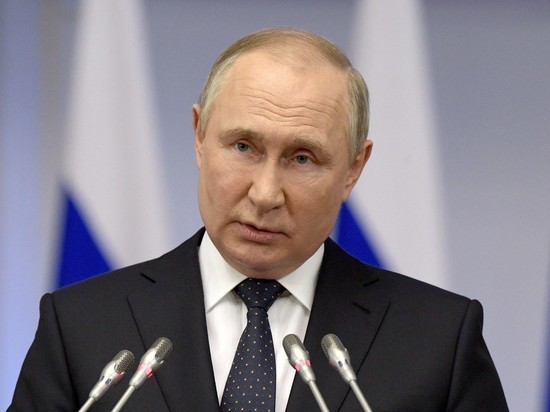And the offended Albanians have nothing to do with it
May 12. Dmitry Polyansky, Russia’s first deputy envoy to the UN, says that Moscow has changed its previously quite benevolent attitude towards Ukraine’s accession to the European Union: “Our position on the EU is similar to the position on Ukraine’s accession to NATO.” On May 19, German Chancellor Olaf Scholz also announced a change in his attitude towards Kiev’s accession to the EU.
According to the leader of the country, which is the economic locomotive of the European Union, Ukraine’s application for membership in the alliance cannot be accelerated.
Is there a causal relationship between these two events? Probably not straight. If Moscow calls something white, then Berlin automatically recognizes this object as black. Public agreement with the Kremlin’s demands is now a taboo for the German authorities, which is absolutely impossible to break. But there is still an indirect connection between Moscow’s actions and Berlin’s actions.

Photo: kremlin.ru
“I love Germany so much that I prefer there to be two,” said Francois Mauriac, once the French winner of the 1952 Nobel Prize in Literature. None of those who continue to “dearly love” Ukraine at the Russian top does not want the “bifurcation” of this state. But Moscow’s actions directly affect how much territory will remain under the control of the official Kiev authorities.
Secretary of the General Council of the ruling party Andrey Turchak during a visit to the Kherson region: “Russia is here forever. There should be no doubt about it. There will be no return to the past. We will live together, develop this rich area.”
Deputy Prime Minister of the Russian Federation Marat Khusnullin during a visit to the Zaporozhye region: “The prospect of the region is to work in our friendly Russian family.”
The question is: and in such conditions, how can Ukraine be admitted to the EU at an accelerated pace? Commenting on Olaf Scholz’s statement in his telegram channel, the famous Russian foreign policy thinker Timofey Bordachev found, it seems to me, very correct words: “This is already beyond surrealism, and it is unclear who creates it: those who submit an application under missiles or those who discuss it, as if there are only technical issues”.
Who creates surrealism is unclear, but who reduces the volume of this very surrealism, on the contrary, is quite obvious. This is the same Chancellor Scholz, who has just postponed the fulfillment of the “European dream” of Ukraine for an indefinite future.
Of course, Scholz motivated the change in his position not by the surrealism of the idea of Kiev’s accelerated entry into the EU, but by a much more plausible pretext. They say that Albania and North Macedonia applied for their membership in the European Union much earlier than Ukraine. And therefore it would be unfair to let her go ahead. In other words, “citizen, you weren’t standing here! Welcome to the very back of the queue!”
But the thesis that “Albanians and Macedonians will be offended” is, of course, just a political cover. The decision of official Berlin is based on a sober recognition and acceptance of strategic realities. Realities that are clearly not ready to settle down and stabilize yet.
What other current regions controlled by official Kiev will find in themselves a desire to join the “friendly Russian family”, say, in three months? And will Kiev itself, which, as you know, is the “mother of Russian cities”, be among these regions? Looking from today, the answers to these questions are impossible to predict. You can only wait for them. This is exactly what the Federal Chancellor decided to do.

